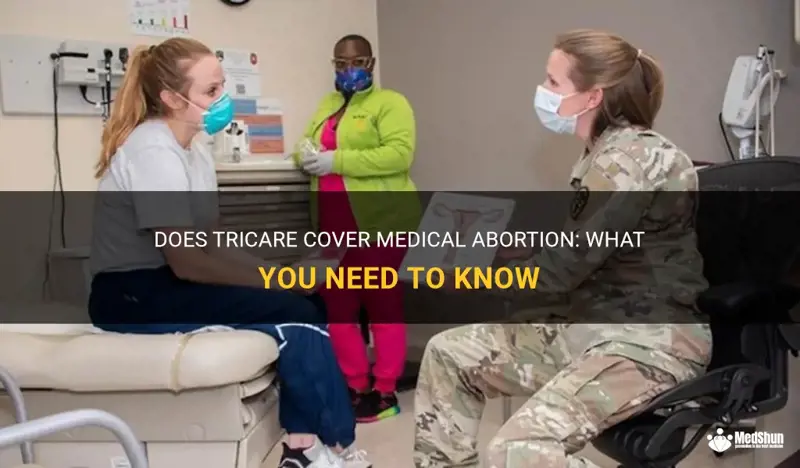
Gender Selective IVF: Everything You Need to Know About Choosing Your Baby’s Gender
April 28, 2025Does TRICARE Cover IVF? Your Ultimate Guide to Fertility Benefits for Military Families
Hey there! If you’re part of a military family and wondering about starting or growing your family through in vitro fertilization (IVF), you’ve probably asked yourself, “Does TRICARE cover IVF?” It’s a big question, and one that comes with a lot of emotions—hope, frustration, maybe even a little confusion. You’re not alone in this! Military families face unique challenges when it comes to fertility, and I’m here to break it all down for you in a way that’s easy to understand, super thorough, and packed with stuff you won’t find just anywhere.
We’re going to dig into everything: what TRICARE actually covers, who qualifies, what’s left out, and even some insider tips to help you navigate this journey. Plus, I’ll sprinkle in real-life examples, the latest updates as of March 24, 2025, and some practical advice to make this feel less overwhelming. Let’s get started!

What Is TRICARE, and Why Does It Matter for IVF?
TRICARE is the health insurance program for military folks—active-duty service members, retirees, and their families. It’s a big deal because it covers about 10 million people worldwide! Whether you’re stationed in Texas or halfway across the globe, TRICARE is there to help with medical stuff. But when it comes to fertility treatments like IVF, things get a little tricky.
IVF, if you’re new to the term, is when doctors take an egg and sperm, mix them in a lab, and then place the embryo back into the uterus to (hopefully) grow into a baby. It’s a lifeline for people struggling with infertility, but it’s also expensive—sometimes $12,000 to $25,000 per try! So, naturally, military families want to know if TRICARE can help foot the bill.
Here’s the short answer: TRICARE’s coverage for IVF is super limited. But don’t stop reading yet! There’s a lot more to unpack, and knowing the details could save you time, money, and heartache.

Does TRICARE Cover IVF? The Basic Rundown
Let’s cut to the chase. TRICARE doesn’t cover IVF for most people. It’s not part of the standard benefits package, which is a bummer for lots of military families dreaming of a little one. But there’s a catch—some folks can get it covered under specific conditions. Here’s the breakdown:
Who Qualifies for IVF Coverage Under TRICARE?
TRICARE only covers IVF if you’re an active-duty service member (not a retiree or dependent) and you’ve had a serious or severe illness or injury while on duty that caused infertility. This is called a “service-connected” condition. Think things like:
- A blast injury affecting reproductive organs.
- Severe illness (like cancer) that required treatments damaging fertility.
- Toxic exposure linked to infertility (a growing concern for vets!).
If that’s you, TRICARE might pay for IVF through something called the Supplemental Health Care Program. But there are rules:
✔️ You need a doctor to prove the injury or illness happened on active duty.
✔️ It has to be bad enough that you can’t have kids without IVF.
✔️ You’ll need prior authorization for every step—egg retrieval, embryo transfer, etc.
For example, imagine a soldier injured by an IED in Afghanistan. If that injury wrecked their ability to have kids naturally, TRICARE could step in. But if you’re a spouse or retiree? Nope, you’re out of luck under this rule.
What’s Covered If You Qualify?
If you meet those tough criteria, here’s what TRICARE might cover:
- IVF procedures (egg retrieval, fertilization, embryo transfer).
- Cryopreservation (freezing eggs, sperm, or embryos) while you’re still active duty.
- Even donated eggs or sperm, if needed—something new as of March 2024!
But there’s a limit: up to six egg retrievals and three full IVF cycles. After that, you’re on your own financially.
What’s Not Covered?
For everyone else—or if your infertility isn’t tied to a service injury—TRICARE says no to IVF. Here’s a quick list of what’s off the table:
❌ IVF for spouses or retirees.
❌ Intrauterine insemination (IUI), a simpler fertility treatment.
❌ Freezing eggs or sperm just because you want to delay parenthood.
❌ Surrogacy costs (though a surrogate on TRICARE might get some care).
This gap leaves a lot of families feeling stuck, especially since civilian insurance often covers more. So why the strict rules? Some say it’s budget-related—IVF is pricey, and TRICARE has to prioritize. Others think it’s about fairness across all beneficiaries. Either way, it’s a hot topic!
Why Military Families Struggle More with Infertility
Here’s something you might not hear every day: military folks deal with infertility more than civilians. A 2021 Blue Star Families survey found that 42% of active-duty families said the military lifestyle made having kids harder. Why? Let’s dig into the not-so-obvious reasons.
Stress and Moves Mess with Fertility
Picture this: You’re a military spouse, moving every two years, unpacking boxes while your partner’s deployed. That’s stressful! Stress can mess with hormones and make it tougher to conceive. Science backs this up—a 2022 study from the American Society for Reproductive Medicine showed chronic stress can lower fertility rates by up to 20%.
Toxic Exposure Is a Hidden Culprit
Ever heard of burn pits? Those giant trash fires on bases overseas release nasty chemicals. Veterans exposed to them report higher infertility rates. A 2023 VA study found that vets with toxic exposure were 15% more likely to need fertility help. TRICARE doesn’t cover IVF for this unless it’s a severe, documented injury, but it’s a big deal for advocacy groups pushing for change.
Timing Is Tough
Military life doesn’t always line up with baby-making plans. Deployments, training, and long hours mean couples aren’t always together when it’s “go time” for conception. One spouse told me, “We missed so many chances because he was always gone when I was ovulating.” It’s a personal struggle that doesn’t show up in stats but hits home for many.
Where Can You Get IVF If TRICARE Won’t Pay?
Okay, so TRICARE’s rules are strict. But don’t lose hope! There are other ways military families can access IVF, and some are pretty unique.
Military Treatment Facilities (MTFs) Offer a Deal
Eight military hospitals in the U.S. provide IVF at a discount because they’re training doctors. Places like Walter Reed in Maryland or Brooke Army Medical Center in Texas offer it for about $5,000-$10,000 per cycle—way less than the civilian average. The catch? Long waitlists and limited spots. You might wait months, and you still pay out of pocket.
Here’s a quick list of those spots:
- Walter Reed National Military Medical Center (Bethesda, MD)
- Brooke Army Medical Center (San Antonio, TX)
- Madigan Army Medical Center (Tacoma, WA)
- …and five others (check TRICARE’s site for the full list!).
Pro tip: Call ahead and ask about wait times. One family I know drove three hours to Walter Reed and got in after six months—worth it for the savings!
Private Clinics with Military Discounts
Lots of fertility clinics love supporting military families and offer discounts. For example, California IVF Fertility Center gives a big price cut if you’re on TRICARE. Dr. John Zeringue, a former Air Force doc, runs it and gets the struggle firsthand. He once said, “Military families sacrifice so much—I want to give back.” Discounts can drop IVF costs to $8,000 or less per cycle. Call around to clinics near you and ask!
VA Benefits for Veterans
If you’re a veteran, the VA might help. As of March 2024, the VA expanded IVF coverage to:
- Unmarried vets.
- Same-sex couples.
- Vets needing donated eggs or sperm.
You need a service-connected condition causing infertility, but it’s broader than TRICARE’s rules. One vet I read about got IVF after a spinal injury from Iraq—her twins were born last year!
How Much Does IVF Cost Without TRICARE?
Since TRICARE won’t cover IVF for most, let’s talk cash. Costs vary, but here’s a real-world look:
| Service | Average Cost | Notes |
|---|---|---|
| IVF Cycle (1 attempt) | $12,000 – $25,000 | Includes meds, labs, procedure |
| Medications | $3,000 – $5,000 | Varies by dose |
| Egg/Sperm Freezing | $1,000 + $500/year | Storage fees add up |
| Donor Eggs/Sperm | $5,000 – $15,000 | Extra if you need this |
| MTF IVF (military) | $5,000 – $10,000 | Cheaper but limited access |
Real example: Sarah, an Army spouse, spent $18,000 on one IVF cycle in 2024. “We saved for two years,” she said. “It was brutal, but our son was worth it.”
Tips to Save Money
- Shop around: Prices differ by clinic. Urban areas might charge more than rural ones.
- Ask about payment plans: Many clinics let you pay over time.
- Look for grants: Groups like the Bob Woodruff Foundation offer up to $10,000 for IVF to vets.

What’s New in 2025 for TRICARE and IVF?
Big news! As of March 24, 2025, there’s buzz about expanding TRICARE’s IVF coverage. Here’s the latest:
NDAA Proposals
The 2025 National Defense Authorization Act (NDAA) has lawmakers like Rep. Sara Jacobs and Sen. Tammy Duckworth pushing to cover IVF for all active-duty members and spouses—not just those with service injuries. A recent poll showed 80% of voters support this, so it’s got traction. If it passes, it could start in 2026. Fingers crossed!
DoD Policy Updates
In March 2024, the Department of Defense tweaked its rules to let unmarried service members and same-sex couples get IVF if they qualify under the injury rule. It’s a step forward, but advocates say it’s not enough. “We need universal coverage,” said Barbara Collura from Resolve. “Infertility’s a disease, not a luxury.”
Research Insights
A 2024 DoD study found that 1 in 6 military couples face infertility—higher than the civilian 1 in 7. It’s pushing leaders to rethink benefits, especially since 77% of workers say fertility coverage keeps them at a job. Recruitment’s a factor too—better benefits could attract more troops.
Comparing TRICARE to Civilian Insurance
Ever wonder how TRICARE stacks up? Here’s a peek:
| Feature | TRICARE | Top Civilian Plans |
|---|---|---|
| IVF Coverage | Only for severe injury | 47% of big employers |
| Diagnostic Tests | Yes, fully covered | Usually yes |
| IUI | No | Often partial |
| Freezing Eggs/Sperm | Only if injured | Sometimes included |
Civilian plans are pulling ahead—14 federal employee plans added IVF in 2024. TRICARE’s lagging, and families notice.
Practical Steps to Navigate Your IVF Journey
Feeling overwhelmed? Here’s a step-by-step guide to get started:
- Check Your Status: Are you active duty with a service injury? Call TRICARE (1-800-874-2273) to confirm eligibility.
- Get a Referral: Your primary doc needs to send you to a specialist for infertility testing (covered by TRICARE!).
- Explore MTFs: Contact a military hospital with IVF—ask about costs and wait times.
- Research Discounts: Call local clinics and mention your military status.
- Save Up: Start a fund—every little bit helps.
- Stay Informed: Follow NDAA updates on sites like Military.com.
Real tip: Join a support group like Resolve’s military chapter. One mom said, “Talking to others who get it saved my sanity.”
The Emotional Side of IVF for Military Families
Let’s get real—IVF isn’t just about money or rules. It’s emotional. Military families often hide this struggle, but it’s okay to feel it. One spouse shared, “I’d cry every time a deployment delayed our next try. You feel so alone.” You’re not! Connecting with others can lift that weight.
What’s Next? Your Voice Matters
The fight for better IVF coverage is heating up. Lawmakers, vets, and families are pushing hard. Want to help? Write your congressperson or join a rally. Change starts with us!
Let’s Chat!
What’s your take? Have you tried IVF with TRICARE? Drop a comment below—I’d love to hear your story! Or ask me anything—I’m here to help. Let’s keep this conversation going!
